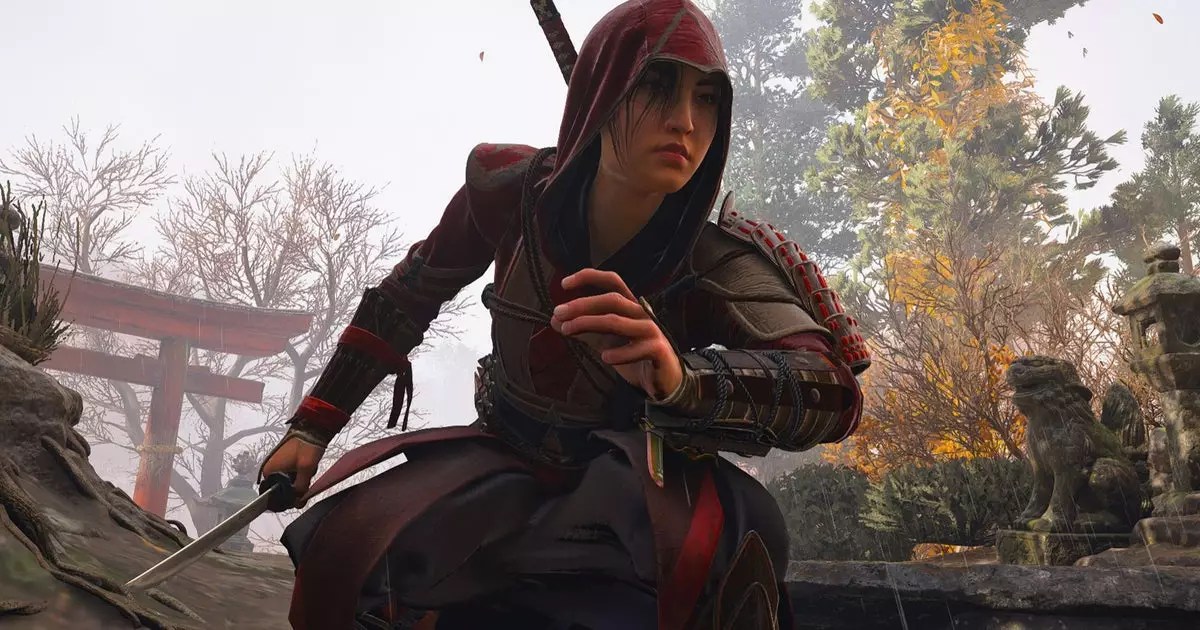Ubisoft, the renowned gaming titan responsible for iconic franchises like Assassin’s Creed and Far Cry, is navigating turbulent waters in the gaming industry. The recent launch of *Assassin’s Creed Shadows* marked a pivotal moment for the company; CEO Yves Guillemot emphasized that this installment has solidified the fan-favorite series’ place in the hearts of gamers worldwide. While this newfound success showcases the enduring strength of the Assassin’s Creed brand, it also casts a spotlight on the challenges plaguing Ubisoft, including cost management and employee retention amid fierce competition.
Despite the excitement surrounding Shadows, the company acknowledges that the past year has been tumultuous. Following a mixed reception to some of their prior titles and a need for revitalization, Ubisoft is facing the tough reality of unsatisfactory earnings. Guillemot’s acknowledgment of the firm being “slightly below objective” raises eyebrows as the gaming landscape becomes increasingly competitive, with many players vying for consumer attention and loyalty.
Financial Restructuring: A Necessary Evil?
To address these financial setbacks, Ubisoft is embarking on a significant cost-cutting initiative aiming to trim at least €100 million from their operational expenses. This strategic move, while seemingly prudent, raises questions about its long-term implications for the company culture and workforce morale. The mention of recent job cuts to the tune of approximately 3,000 employees since late 2022 sends shockwaves through the charming facade of video game development, revealing a sobering reality beneath the glitz and glamour.
While Guillemot insists that this “discipline” within the organization will fortify its foundation, the impact on remaining employees cannot be disregarded. Cutting costs at the expense of human capital – the lifeblood of creativity in game development – risks stifling innovation and fostering an atmosphere of anxiety among those left behind. This duality of cost management and workforce stability will be crucial as Ubisoft continues its turbulent journey.
A New Era of Game Development
In a bid to regain its footing, Ubisoft has partnered with Tencent to create a subsidiary focused on major franchises including Assassin’s Creed, Far Cry, and Rainbow Six. This collaboration underscores the need to pivot toward more adaptive and agile development practices that resonate with the changing preferences of gamers. Guillemot’s remarks about allowing additional development time for some of their top productions herald a new age for the firm, emphasizing quality over quantity.
This approach could redefine Ubisoft’s output. The commitment to delivering “the best conditions for success” signals a hopeful departure from the previously rushed timelines that sometimes plagued their titles. By extending development cycles, Ubisoft can ensure that their blockbuster games will not only meet but exceed expectations, fostering stronger connections with their audiences.
Balancing Innovation and Tradition
While the intricacies of Ubisoft’s strategy unfold, the clash between narrative-driven single-player experiences and the ever-increasing demand for live-service games (GaaS) remains a central theme. The challenge lies in pursuing a dual approach that caters to both worlds; creating expansive open-world adventures that captivate solitary players while simultaneously delivering vibrant multiplayer experiences that thrive on community engagement.
The incorporation of more frequent content updates into their multiplayer offerings could bolster titles by extending their longevity in the market. However, Ubisoft must tread carefully, ensuring that these games do not sacrifice depth for the allure of fleeting trends. The balance of innovation and integrity will determine whether Ubisoft can turn this ship around and reclaim its previous status in the gaming hierarchy.
Leadership Accountability Amidst the Storm
Guillemot’s assertion of managerial “discipline” hints at a profound need for accountability across the organization. While there is an emphasis on improving game quality and strengthening financial standing, it is imperative that executive compensation aligns with company performance. The importance of transparency in leadership is underscored when discussing significant layoffs and budget cuts, creating a dissonance that could erode trust within the ranks.
A culture that encourages introspection at the leadership level can lead to more ethical decision-making, ultimately benefiting the entire organization. If Ubisoft is to emerge from this crisis stronger than before, it must focus on fostering an inclusive environment where each employee feels valued, contributing to a cohesive vision that could redefine the company’s trajectory for years to come.


Leave a Reply